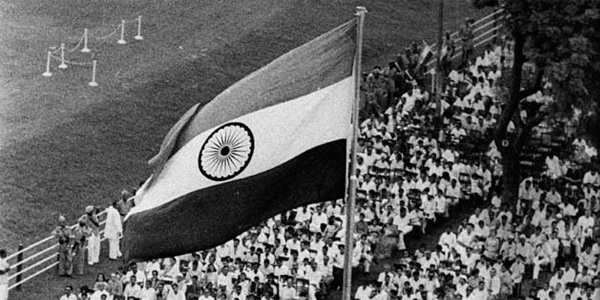Mahmood Khan: A Freedom Fighter

The struggle for India’s independence brought into limelight iconic leaders and brave heroes whom we honour and deservedly too. But, there have been many lesser known freedom fighters who stood up valiantly against the might of the British in their own small way and had to pay a heavy personal price for it. Mahmood Khan Bengaloori is one such freedom fighter from Bangalore who used his pen to fight the British.
Tirade against Foreign Rule
Mahmood Khan’s life was spent in trials and tribulations but he never forsook his courage of conviction. After working in small time clerical posts and getting a pittance of a salary, Mahmood Khan got a good break when the publishers of Qasim-ul-Akhbar made him the editor of this Urdu newspaper in the year 1911.
Using this opportunity, he carried out a tirade against British rule by continuously writing powerful articles and poems supporting the freedom movement. When the British Government came to know about this, they asked the publishers to remove Mahmood Khan from the editorship of the newspaper. As a consequence, Mahmood Khan lost this means of livelihood and his financial problems once again surfaced. But this did not deter him from writing articles against the British rule under various pseudo names.
His luck ran out when he wrote a poem; calling himself ‘Seemab Bengaloori’. The intelligence wing of the British Government found out his identity and, as a result, the Collector threatened to deport Mahmood Khan and to ban the newspaper.
When the British faced reverses in the First World War, Mahmood Khan used this opportunity to rope in a few writers and highlighted the same, much to the chagrin of the British establishment. The pressure from the British Government mounted until Mahmood Khan could not bear it anymore and finally he left Bangalore reluctantly.
Struggle for Livelihood
Mahmood Khan went to Anantpur and from 24th November, 1913 he worked in the North Anantpur gold mines for four years on a salary of Rs. 40/- per month. From 1918 to 1927 he worked as Time Keeper/ Store Keeper in another gold mining company owned by John Taylor. Thereafter, Mahmood Khan attempted to eke out his livelihood by venturing to do various businesses, but he failed in all these ventures and incurred heavy losses. Consequently, he returned to Bangalore in the year 1929 in search of employment.
In Bangalore, he was fortunate to be appointed as Superintendent of Ahl-e-Islam Orphanage at Dickenson Road (now called Muslim Orphanage). Here, he served for some eleven years and rendered yeoman service by taking steps to impart self-employment skills to the orphan children. With his initiative, an Industrial School was also started by the Orphanage. He introduced the children to sports like football etc. and built up their teams. His services to the Orphanage are, indeed, unforgettable.
Revolutionary Publications
It was during this time that Mahmood Khan started writing his most famous book, Saltanat-e-Khudad (1939). This book in Urdu language was written and published when the British were still ruling India and this speaks of his courage of conviction. The path-breaking book presented Tipu Sultan as a king who was driven by an exceptional nobility of character and who had a zeal for reforms and development. The book citing various verifiable sources presented Tipu Sultan as a tolerant king who treated all the citizens well irrespective of the religion to which they belonged. This was in stark contrast to the depiction of Tipu Sultan as a fanatic, tyrant and plunderer by the British historians of those times.
Apart from Sultanat-e-Khudadad, Mahmood Khan Bengaloori authored nine other Urdu books. Of these, Hyder Ali (1938) was a historical novel and Saheefaye Tipu Sultan (1947) was an Urdu translation of William Kirk Patrick’s book, Selected Letters of Tipu Sultan. Mahmood Khan supplemented the translation with his clarifications wherever required. This book was released in the year in which India attained freedom. Mahmood Khan dedicated this book to the youth of India who fought for the freedom of our country. How sad that even after India gained freedom, this frail man from Bangalore who fought the British with the might of his pen was not recognized and honoured.
A Sad End
However, the last days of Mahmood Khan’s life were spent in much suffering and misery because of severe financial problems and poor health. The books he had written were doing well in the market. But he had surrendered the publication and distribution rights to the publishers without getting anything in recompense. Desperate due to his financial needs, he wrote a number of letters to the publishers. The publishers’ replies were mere excuses and a few of them brazenly lied that they had incurred losses. Adding to his woes was the problem that these publishers who were from Lahore and other places were now in a foreign country (Pakistan) due to the partition and the publishers had no intention of honouring the commitments which they had made in the undivided country.
Left with no alternative, Mahmood Khan started corresponding with the Government seeking grant of pension. After prolonged efforts, he was able to receive a pension of Rs.100/- per month. But this was sanctioned for just one year from April 1957. A time came when Mahmood Khan started selling the only possession he had and that too at throw-away prices: his valuable books which he had so painstakingly collected from years. Nothing can be more heart-rending to a man of letters.
Finally, Mahmood Khan Bengaloori bid adieu to all his troubles and expired on 15th October 1958 at the age of 71 years. He was buried in the Quddus Saheb graveyard at Bangalore. A revolutionary author, historian and a freedom fighter died in penury without being honoured. But the legacy he has left behind lives on, making every Indian proud of him – if he is told the true story.
(The author is a retired KAS officer and can be contacted at tahsin789@yahoo.com).

